 * Image source: same as the link
* Image source: same as the linkStop NATO blog
February 24, 2011
U.S. Backs Japan In Looming Confrontation With Russia
Rick Rozoff
Last week Kamitsuki Toyohisa, the Japanese Foreign Ministry counselor for European Affairs, said that the relationship between his country and Russia is "at its worst point in decades."
In fact the dramatic ratcheting up of rhetoric - and corresponding actions - on both sides over the Kuril Islands are more evocative of the situation preceding the Russo-Japanese War of 1904-1905 and the two nations' conflict on the Manchurian border in 1938-1939 than any previous developments after the Second World War.
On February 15 Japan's Kyodo News reported that the Russian coast guard had fired on a Japanese fishing vessel off the Kurils, a charge denied by the Russian side. However, a Russian news agency lately revealed the potential for a serious confrontation in recalling that a year ago last month "two Japanese fishing vessels entered Russia's territorial waters off Kunashir Island and ignored warning shots from a Russian guards' helicopter. As a result, the guards had to open direct fire at the vessels. The fishing boats returned to their port of Rausu with numerous bullet holes on their hulls." [1]
On the same day the same Russian press source announced that Russia would deploy short- and long-range air defense missile systems, including the advanced S-400 Triumf system with long-range surface-to-air missiles, to the South Kuril Islands, located between Russia's Kamchatka Peninsula and Japan's Hokkaido island. The S-400 is designed for use against aircraft (including stealth warplanes), cruise missiles and ballistic missiles.
An official from the nation's General Staff of the Armed Forces confirmed that "S-400 missile defense systems could be deployed to the islands to protect them from possible attacks." [2]
A week earlier Japanese Prime Minister Naoto Kan spoke at this year's National Rally to Demand the Return of the Northern Territories - Northern Territories is the Japanese, and as will be seen shortly, the U.S. name for the South Kurils - in Tokyo and referred to Russian President Dmitry Medvedev's visit to one of the four South Kuril Islands last November (the first by a Russian or Soviet head of state) as an "unforgivable outrage."
Two days afterward, in a meeting with Defense Minister Anatoly Serdyukov and Regional Development Minister Victor Basargin, who had recently returned from the Kurils, Russian President Medvedev ordered the deployment of military hardware to the islands, stating “the additional weapons to be deployed there must be sufficient and modern in order to ensure the security of the islands as an integral part of Russia”. [3]
On February 11 Russian and Japanese foreign ministers Sergei Lavrov and Seiji Maehara met in Moscow for two hours, one-on-one for half of that time. Maehara is an advocate of revising Article 9 of his nation's constitution (which states "the Japanese people forever renounce war") and of securing the Kurils' early return from Russia, which seized them in the waning days of the Second World War.
The Chinese press at the time quoted a Pacific affairs analyst as follows:
"During the rally in Tokyo on Monday [February 7], Maehara pledged that he would personally see to it that the islands are returned to Japan, in fact he staked his political career on the realization of this.
"Maehara fundamentally believes two things: firstly, the islands are legally Japanese territory and secondly, that Japan cannot completely end World War II until the islands are returned and a peace treaty signed.
"I don't think this issue should be dismissed as merely a 'territorial spat' and let's not forget that for all intents and purposes Japan and Russia are still at war." [4]
February 24, 2011
U.S. Backs Japan In Looming Confrontation With Russia
Rick Rozoff
Last week Kamitsuki Toyohisa, the Japanese Foreign Ministry counselor for European Affairs, said that the relationship between his country and Russia is "at its worst point in decades."
In fact the dramatic ratcheting up of rhetoric - and corresponding actions - on both sides over the Kuril Islands are more evocative of the situation preceding the Russo-Japanese War of 1904-1905 and the two nations' conflict on the Manchurian border in 1938-1939 than any previous developments after the Second World War.
On February 15 Japan's Kyodo News reported that the Russian coast guard had fired on a Japanese fishing vessel off the Kurils, a charge denied by the Russian side. However, a Russian news agency lately revealed the potential for a serious confrontation in recalling that a year ago last month "two Japanese fishing vessels entered Russia's territorial waters off Kunashir Island and ignored warning shots from a Russian guards' helicopter. As a result, the guards had to open direct fire at the vessels. The fishing boats returned to their port of Rausu with numerous bullet holes on their hulls." [1]
On the same day the same Russian press source announced that Russia would deploy short- and long-range air defense missile systems, including the advanced S-400 Triumf system with long-range surface-to-air missiles, to the South Kuril Islands, located between Russia's Kamchatka Peninsula and Japan's Hokkaido island. The S-400 is designed for use against aircraft (including stealth warplanes), cruise missiles and ballistic missiles.
An official from the nation's General Staff of the Armed Forces confirmed that "S-400 missile defense systems could be deployed to the islands to protect them from possible attacks." [2]
A week earlier Japanese Prime Minister Naoto Kan spoke at this year's National Rally to Demand the Return of the Northern Territories - Northern Territories is the Japanese, and as will be seen shortly, the U.S. name for the South Kurils - in Tokyo and referred to Russian President Dmitry Medvedev's visit to one of the four South Kuril Islands last November (the first by a Russian or Soviet head of state) as an "unforgivable outrage."
Two days afterward, in a meeting with Defense Minister Anatoly Serdyukov and Regional Development Minister Victor Basargin, who had recently returned from the Kurils, Russian President Medvedev ordered the deployment of military hardware to the islands, stating “the additional weapons to be deployed there must be sufficient and modern in order to ensure the security of the islands as an integral part of Russia”. [3]
On February 11 Russian and Japanese foreign ministers Sergei Lavrov and Seiji Maehara met in Moscow for two hours, one-on-one for half of that time. Maehara is an advocate of revising Article 9 of his nation's constitution (which states "the Japanese people forever renounce war") and of securing the Kurils' early return from Russia, which seized them in the waning days of the Second World War.
The Chinese press at the time quoted a Pacific affairs analyst as follows:
"During the rally in Tokyo on Monday [February 7], Maehara pledged that he would personally see to it that the islands are returned to Japan, in fact he staked his political career on the realization of this.
"Maehara fundamentally believes two things: firstly, the islands are legally Japanese territory and secondly, that Japan cannot completely end World War II until the islands are returned and a peace treaty signed.
"I don't think this issue should be dismissed as merely a 'territorial spat' and let's not forget that for all intents and purposes Japan and Russia are still at war." [4]

![[URGENT PLEA: In Update] EMERGENCY in GANGJEONG Since AUG. 24, 2011](http://2.bp.blogspot.com/-3iz8k-USXVY/TlmRYhhIYtI/AAAAAAAAL2c/9dbF85ZIkIs/s227/jejusit.jpg)
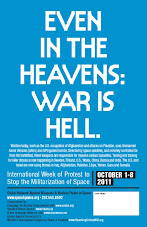


![[Solidarity from Japan for the Jeju] 253 individuals and 16 groups/organizations](http://2.bp.blogspot.com/_gnM5QlRx-4c/TR_YeNVE1yI/AAAAAAAAHWQ/ARyf6oQN0S0/S227/jeju_12_10j.jpg)
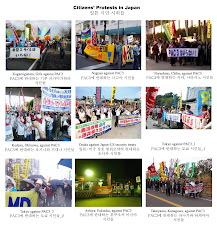
![[Translation] Korean organizations' statement: Immediately cancel the joint ROK-US drill Nov 26](http://2.bp.blogspot.com/_gnM5QlRx-4c/TPOE8VKXHFI/AAAAAAAAGlM/8lryt-8sFjc/S227/1.jpg)
![HOT! [Hankyoreh Hani TV] Beneath the Surface: the investigation into the sinking of the Cheonan](http://4.bp.blogspot.com/_gnM5QlRx-4c/TOI83qht8aI/AAAAAAAAGXU/22SW6Q5ntV8/S227/HaniTV%2BCheonan.gif)

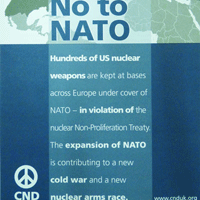

![[Translation]Statement against illegal inspection and unjust lay-off by the Kunsan USAFK!(Nov_2010)](http://4.bp.blogspot.com/_gnM5QlRx-4c/TOPLsVkZMqI/AAAAAAAAGZs/3YnnckIyAaY/S227/gunsan%2Bprotest.gif)
![[Translation] Korean organizations' statement against dispatching special force to the UAE on Nov.](http://4.bp.blogspot.com/_gnM5QlRx-4c/TOP95zHXlCI/AAAAAAAAGak/E0Ug1XtUFfM/S227/antiwarpeace.jpg)
![[Translation] Stop, Joining MD!: South Korean activists' statement and writing on Oct. 25, 2010](http://3.bp.blogspot.com/_gnM5QlRx-4c/TOP7Es4_2sI/AAAAAAAAGac/eWVMPD-U4p0/S227/StopMD.jpg)
![[In Update] People First, NO G-20 (Nov. 6 to 12, Korea)](http://2.bp.blogspot.com/_gnM5QlRx-4c/TJd53XBzHlI/AAAAAAAAFQo/ldO9JPE3eqo/S227/left21_G20.jpg)
![[International Petition] Stop US helipad plan in Okinawa to save great nature](http://4.bp.blogspot.com/_gnM5QlRx-4c/TKC2AHRNzBI/AAAAAAAAFUo/yGWXODTw_uM/S227/yanbaru_w.jpg)

![[Global Network] against the first launch of Quasi-Zenith Satellite, Japan, on Sept. 11, 2010](http://4.bp.blogspot.com/_gnM5QlRx-4c/TIowa1boy4I/AAAAAAAAFDI/82rAi98uq-c/S227/Qzss-45-0_09.jpg)

![[In update] Some collections on the Koreans’ protests against the sanction & war on Iran](http://4.bp.blogspot.com/_gnM5QlRx-4c/TJMvke6t8zI/AAAAAAAAFO4/tamQ8LUnOOA/S227/No+Sanction+on+Iran.jpg)
![[Three International Petitions] to End the Korean war and peace treaty(or peace resolution)](http://1.bp.blogspot.com/_gnM5QlRx-4c/THef7bzWxYI/AAAAAAAAE44/wwdzSDfYhdw/S227/border.jpg)
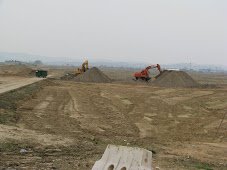


![[Collection of Documents] No Base Learning and Solidarity Program_Korea(June 14 to 20, 2010)](http://1.bp.blogspot.com/_gnM5QlRx-4c/TCTvVuN8NeI/AAAAAAAAEek/8vBJVaHdk10/S227/No-Base-banner.jpg)
![Site Fwd:[John Hines] A U.S. Debate coach’s research trip on the Issues of Korea](http://3.bp.blogspot.com/_gnM5QlRx-4c/TINCO36mzzI/AAAAAAAAE_w/Rds12NcBOXM/S227/Jeju-Peace-Tour.jpg)


![[News Update] Struggle Against the Jeju Naval Base since Jan. 18, 2010](http://1.bp.blogspot.com/_gnM5QlRx-4c/S1vvWaP25uI/AAAAAAAACkg/QvpW1tgOlKM/S226/scrum1.jpg)


![[Urgent] Please spread the Letter!: There was no Explosion! There was no Torpedo! (May 26, 2010)](http://4.bp.blogspot.com/_gnM5QlRx-4c/S_9JmsKEU7I/AAAAAAAAEP8/sAWjSPqxzUI/S227/grounded.jpg)
![Text Fwd: [Stephen Gowans]The sinking of the Cheonan: Another Gulf of Tonkin incident](http://1.bp.blogspot.com/_gnM5QlRx-4c/TAL_FtYKQ-I/AAAAAAAAERE/NEEMijiEcRM/S227/lee-myung-bak.jpg)
![[Japan Focus]Politics in Command: The "International" Investigation into the Sinking of the Cheonan](http://1.bp.blogspot.com/_gnM5QlRx-4c/TBMJ2syJzyI/AAAAAAAAEZU/uTYZccU5vyk/S227/wen_jiabao_and_lee_myungbak.png)
![[Japan Focus] Who Sank the SK Warship Cheonan? A New Stage in the US-Korean War and US-China](http://2.bp.blogspot.com/_gnM5QlRx-4c/S_iQ2vE5ZpI/AAAAAAAAEOU/Oo1SPcAe8FE/S227/buoy_map.gif)
![[Updated on 12/13/10] [Translation Project] Overseas Proofs on the Damages by the Military Bases](http://4.bp.blogspot.com/_gnM5QlRx-4c/S-qSj59gPLI/AAAAAAAAEGM/mwjlFtPE-jo/S227/missile.jpg)
![[International Petition] Close the Bases in Okinawa](http://3.bp.blogspot.com/_gnM5QlRx-4c/S8-z3DYNwNI/AAAAAAAADo4/OswTSchK09M/S227/2.jpg)

![[In Update]Blog Collection: No Korean Troops in Afghanistan](http://4.bp.blogspot.com/_gnM5QlRx-4c/SwnlLD9IewI/AAAAAAAAB9E/oUPssnpNidA/S226/No-Troops-to--Afghanistan.jpg)


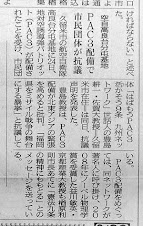

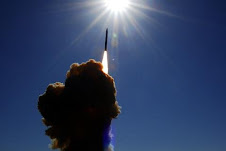



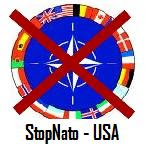


No comments:
Post a Comment